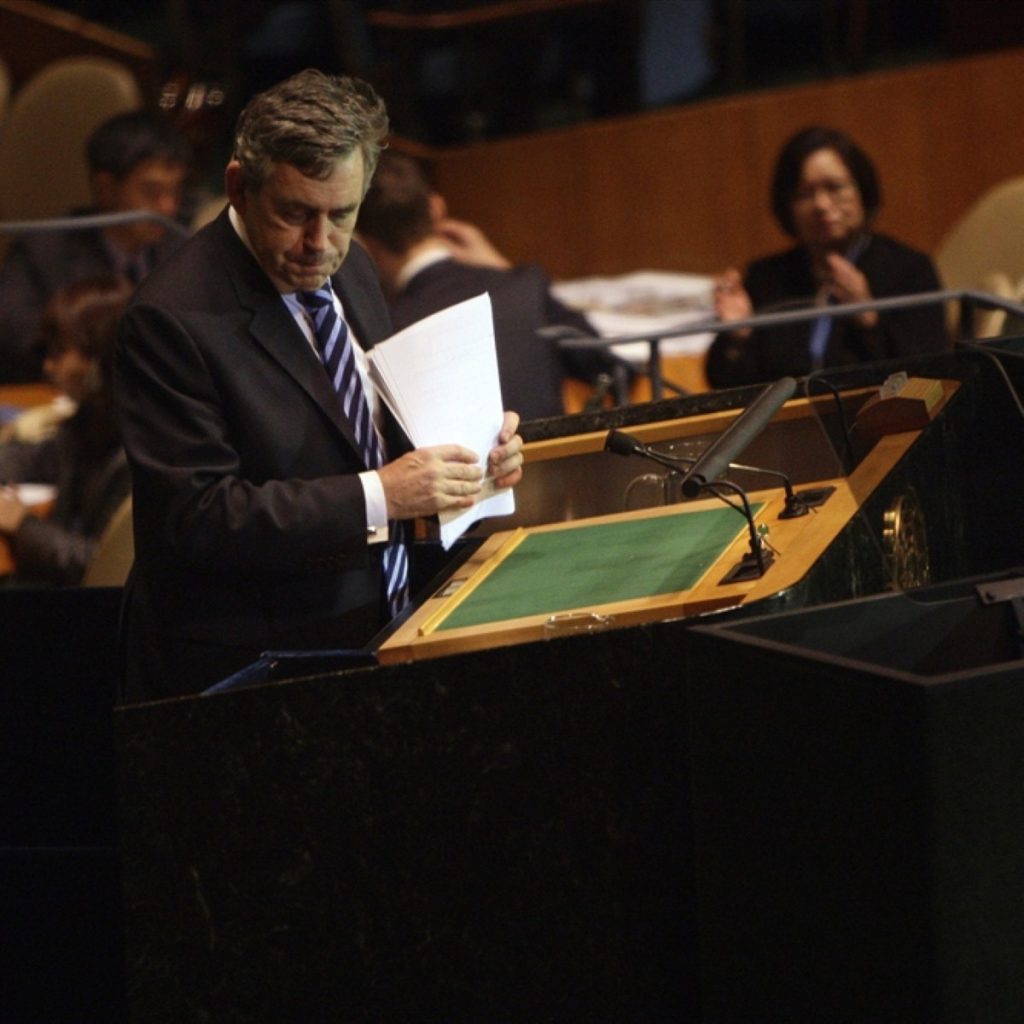Another ugly day for Brown
By Ian Dunt
The prime minister soldiered on on Wednesday despite a ministerial resignation, snubs from the President of the United States, diplomatic tension with the ruler of Libya and questions about his health.
Gordon Brown faced yet another day of unfortunate events and bad press throughout his trip to New York, where he gave a speech last night promising to reduce the Trident nuclear warheads by one.


But the speech was marred by serious delays after Libyan leader Colonel Gadaffi spent one hour and forty minutes delivering a speech scheduled to last 20 minutes. He used the occasion to lambaste almost all of the of the delegates in attendance.
Gadaffi causes trouble for Brown… again
Meanwhile, Downing Street was furiously trying to dampen expectations after allegations of a snub by President Obama reached the British press. The two men apparently spoke informally in the kitchens, but other leaders enjoyed formal arrangements.
Obama refuses talks with Brown
Comment: Be thankful Obama doesn’t care about Britain
Mr Brown’s trip has been bedevilled by questions about his health, seemingly triggered by comments from former home secretary Charles Clarke in the Evening Standard. The questions – focusing mainly around his eye sight – plagued the prime minister during American interviews.
Brown denies ill health rumours
Back at home, a second resignation in two days brought back memories of the dramatic cabinet reshuffle earlier in the summer, in which a slew of ministerial resignations failed to sufficiently weaken the prime minister for a successful leadership challenge.
Gordon Brown insisted that he had offered business minister Baroness Vadera her new post as adviser to the G20, however, and sources close to the team said there had been no rift between the two.
It is all very different from early yesterday, when Mr Brown received the world statesman of the year award at a glittering ceremony by former US secretary of state Henry Kissinger.
“His leadership has been essential to our ability to overcome the moment of danger,” Mr Kissinger said, referring to the financial crisis.









